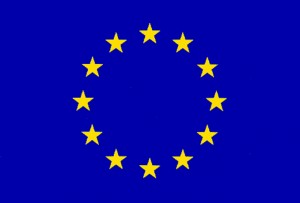 The following is a statement from Catherine Ashton, European Union High Representative for Foreign Affairs and Security Policy, on the European and World Day against the Death Penalty, 10 October 2012.
The following is a statement from Catherine Ashton, European Union High Representative for Foreign Affairs and Security Policy, on the European and World Day against the Death Penalty, 10 October 2012.
Today is World and European Day against the Death Penalty. The European Union is opposed to the use of capital punishment in all cases and under any circumstances. Its universal abolition is one of the key objectives of EU human rights policy.
Catherine Ashton, High Representative of the Union for Foreign Affairs and Security Policy/Vice-President of the Commission, said: “Capital punishment is a cruel, inhumane and irreversible action that violates the basic human right to life and dignity. In the case of any miscarriage of justice, from which no legal system is immune, it represents a terrible and irreversible loss of human life. The death penalty can neither reverse the crime it seeks to punish nor mitigate a victim’s loss. It should be a relic of the past.”
The European Union regularly reaffirms its opposition to the death penalty and uses the various diplomatic tools at its disposal – including statements, demarches and Human Rights Dialogues with its partners – to advance the cause of worldwide abolition. The movement towards abolition is one of the top priorities in its recently adopted Strategic Framework and Action Plan on Human Rights and Democracy, as well as under the European Instrument for Democracy and Human Rights (EIDHR).
While global momentum continues to build toward abolition, 20 of the 58 retentionist countries around the world continue to carry out executions at an alarming rate. Where the death penalty still exists, the EU calls for its use to be progressively restricted and to respect internationally-agreed minimum standards.
The EU’s campaign against the death penalty is equally active in multilateral fora such as the United Nations and is contributing to the adoption of the 67th United Nations General Assembly resolution on a moratorium on use of the death penalty. The EU continues to encourage all States to accede to the Second Optional Protocol to the International Covenant on Civil and Political Rights, the most fundamental UN international instrument for the abolition of death penalty.
As well as leading contributions to the efforts of civil society organisations aimed at the abolition of the death penalty, the EU is the first regional body to have adopted rules prohibiting trade in goods used for capital punishment (or torture and ill-treatment), as well as on the supply of technical assistance related to such goods.


